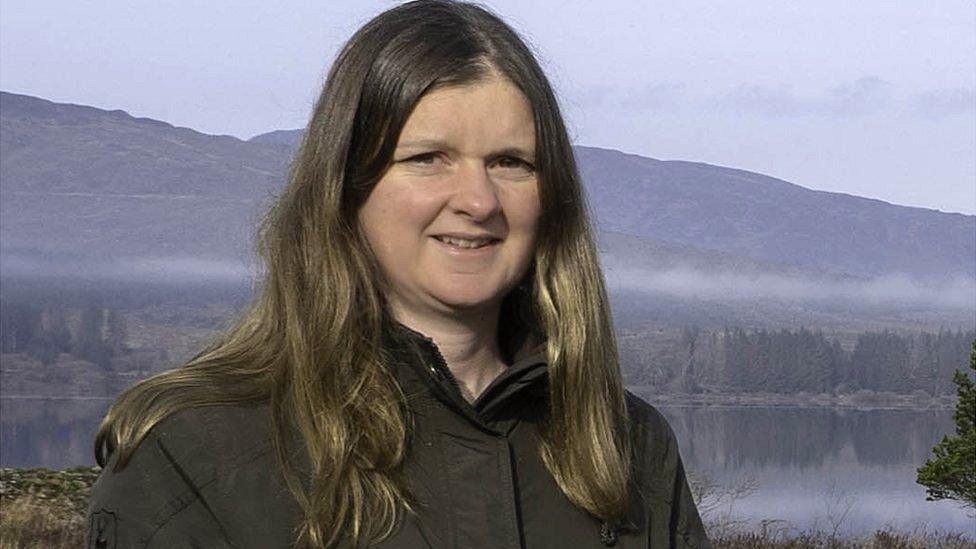Turf sales: Ban in Republic of Ireland renews peatlands debate
- Published
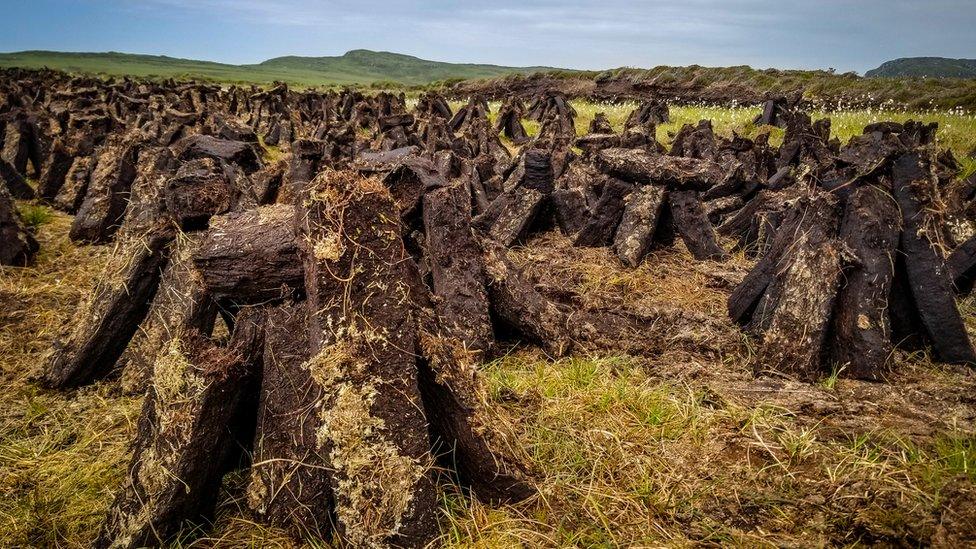
A ban on turf sales in the Republic of Ireland has raised questions about its future in Northern Ireland.
In October the government in Dublin introduced a ban on the sale of turf used as fuel.
Friends of the Earth warned this could result in more illegal cutting north of the border.
Sinn Féin - which opposed the ban - has called for better alignment of turf-selling laws on both sides of the border.
Peatlands are a major feature of the Irish landscape both north and south and perform a valuable environmental role as a carbon sink.
The turf-cutting debate springs from maintaining a balance between preserving the environmental value of peatland versus its traditional use as a domestic fuel.
Peatlands cover approximately 12% of the land area of Northern Ireland according to the Department of Agriculture, Environment and Rural Affairs (Daera) and they took thousands of years to form.
Last year, Daera conducted a public consultation for its Peatlands Strategy 2021-40., external
The aim of the strategy is to restore Northern Ireland's peatlands, which are mostly in a damaged or degraded state.
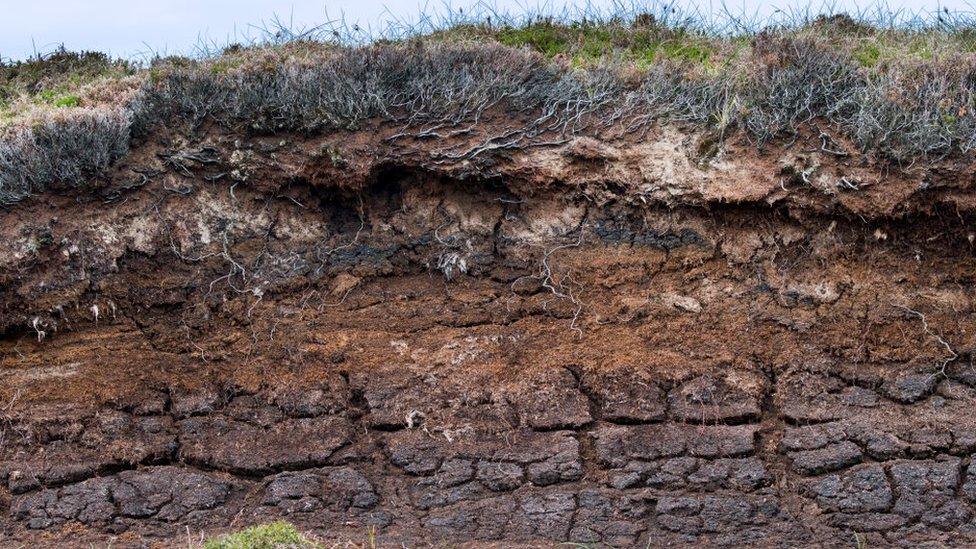
Peatlands are formed from layers of ancient decayed vegetation
The publication of the strategy will require approval from the Northern Ireland Executive.
An executive has not been in place at Stormont since February when the Democratic Unionist Party withdrew from the first minister's position as part of its ongoing protest against the Northern Ireland Protocol.
A spokesperson for Daera said the department would "continue to support ongoing peatland restoration projects in Northern Ireland, which may complement the Peatland Strategy Implementation Plan when it has received executive approval".
'Many alternatives'
James Orr from Friends of the Earth said most of the peat extraction in Northern Ireland was done using machines.
"This is a complete disgrace because Northern Ireland is one of the most important parts of Europe and the world for peatlands," the environmentalist added.
"The answer to a lot of these energy issues, we need to shift away from fossil fuels"
Mr Orr said he was deeply concerned about the extraction of peat for horticultural uses, the kind of peat that is sold in garden centres.
"There's so many alternatives," he said.
"What the legislation in the south may do is to drive even more illegal extraction in the north."
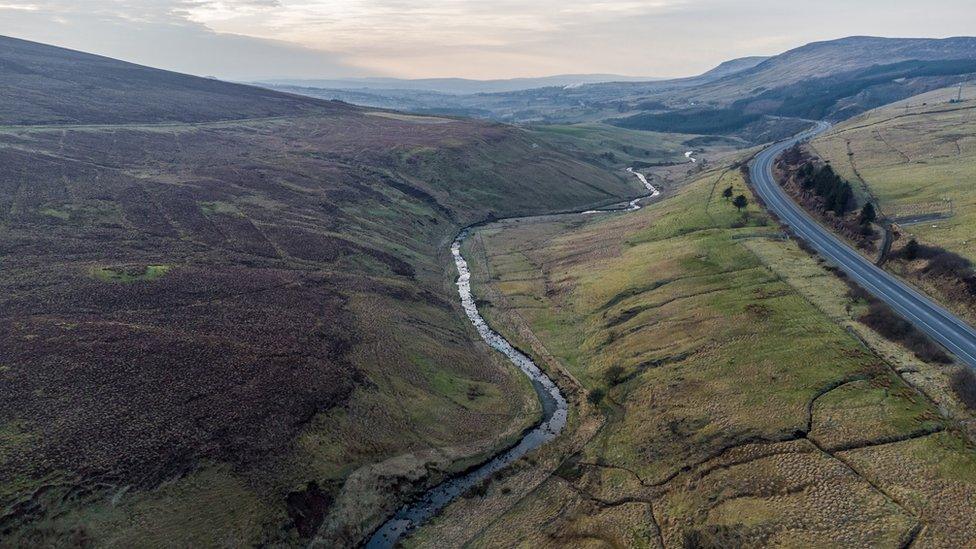
Semi-natural peatlands are estimated to cover 12% of the land area of Northern Ireland
Dr Martin McHugh from the University of Limerick has researched the preservation of bogs but he is also a turf cutter, as an owner of bog land in County Mayo that he shares with his father.
He said that up until the 1970s turf was largely cut by hand using a tool called a sleán.
Machine cutters were then introduced including a "sausage" cutter that Dr McHugh says damages the bog by cutting drains under it and affecting its ability to retain water.
"In a dry summer, bogs can start to dry out naturally and they begin to release their carbon dioxide," he says.
The academic said one way to discourage people from cutting turf was to provide adequate compensation:
"If you pay them and you pay them appropriately they'll stop in the morning. I'll guarantee it," he said.
Under the new legislation in the Republic of Ireland there will be no restriction on people who own their own bog to use turf in their domestic fire or people who share turf with their neighbours.
The ban also covers the sale of smoky coal and wet wood.
A spokesperson for the Irish Ministry for Environment, Climate and Communications said: "The primary focus of these regulations is on improving air quality and improving people's health chances."
'Fuel poverty'
Sinn Féin opposed the introduction of the sales ban in the Republic of Ireland.
Declan McAleer, a Stormont assembly member for West Tyrone, and former chairman of the NI Assembly's agriculture committee, said it was important legislation in the Republic of Ireland and Northern Ireland was aligned.
"It's important that we are aligned as closely as possible. In many parts of Ireland the border runs through these bogs," he said.
"There's a lot of rural communities that rely on turf to heat their homes. It's a fuel poverty matter.
"Turf is one of the few fuels that haven't rocketed in price."
Mr McAleer said in remote areas of his constituency, such as the Sperrin Mountains, homes were not connected to the gas network.
"Peatlands and bogs are of huge environmental and biodiversity value and they are vital for carbon storage but we also need to be mindful that people in those areas use it for heating," he added.

What are peatlands?
Peatlands are a type of wetland found in almost every country, from blanket bogs in the UK to swamp forests in Southeast Asia.
A peat bog in County Tyrone is helping create cleaner drinking water while tackling climate change
The term peatlands refers to the peat soil and the wetland habitat around it.
Peat forms over the course of millions of years as waterlogged conditions slow the process of plant decomposition.
The percentage cover of peatland on the island of Ireland is only exceeded in global terms by three countries - Finland, Canada and Indonesia, Daera says.

Related topics
- Published6 May 2022
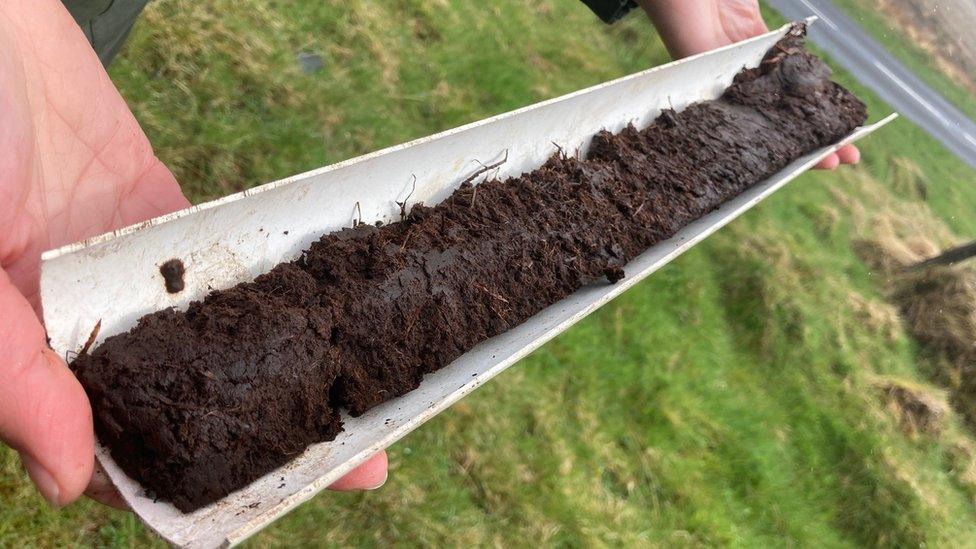
- Published12 November 2021

- Published29 September 2021
